In 27 B.C.E., Octavius, having saved Rome from civil war in the battle against Mark Antony and Cleopatra, was awarded the civic crown, a wreath made of oak leaves tied with a ribbon

The year was 44 B.C.E., and a general-statesman named Julius Caesar held more power than any previous individual in the Roman Republic. The Senate had just granted him the title of dictator perpetuo (“dictator in perpetuity”), with the power to rule the Roman world, which stretched from Spain to the Middle East to North Africa. Some senators, however, disagreed with this decision. Believing that no one person should rule unchecked, they conspired to stab Caesar to death. Many of Rome’s citizens, however, supported Caesar. For them, he was a hero, and it was their affection for him that became a useful tool for those who inherited his legacy. One of the first to use this devotion to his advantage was Gaius Octavius (also known as Octavian and later as Augustus.
Who Is the Heir?
Denne historien er fra November/December 2017-utgaven av Dig Into History Magazine for Kids and Teens.
Start din 7-dagers gratis prøveperiode på Magzter GOLD for å få tilgang til tusenvis av utvalgte premiumhistorier og 9000+ magasiner og aviser.
Allerede abonnent ? Logg på
Denne historien er fra November/December 2017-utgaven av Dig Into History Magazine for Kids and Teens.
Start din 7-dagers gratis prøveperiode på Magzter GOLD for å få tilgang til tusenvis av utvalgte premiumhistorier og 9000+ magasiner og aviser.
Allerede abonnent? Logg på

Worshiping Heaven
For almost 500 years, emperors of the Ming and Qing dynasties offered sacrifices and prayers at the Temple of Heaven in Beijing.
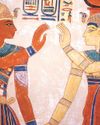
Peace Reigns
The news spread throughout Egypt—a new pharaoh, Ramses III, now sat on the throne.
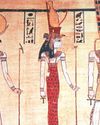
Problems To The East
Ramses III, the second king of Egypt’s 20th Dynasty, is viewed as Egypt’s last truly great pharaoh.
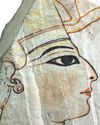
The Successors
Following the death of Ramses III, eight pharaohs, all named Ramses, ruled Egypt.
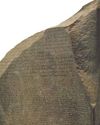
Stone Code
Hundreds of ships, led by the French general Napoleon Bonaparte, sailed from France in May 1798 on a secret mission.

Up & Away!
Eclipse observers often face unexpected difficulties, sometimes on their way to their chosen sites and sometimes at a site itself.

Edison's Eclipse Adventure
Thomas Edison (1847–1931) is the best-known inventor in American history.
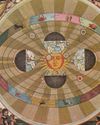
Digging Up Copernicus
The scientist “who made the Earth a planet” is how the Harvard-Smithsonian astronomer Owen Gingerich refers to Nicolaus Copernicus (1473–1543). Copernicus’ path breaking book, On the Revolutions of the Heavenly Spheres,challenged the centuries-old belief that the Earth stood stationary at the center of the cosmos.
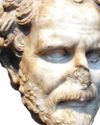
Demosthenes & Cicero
Even today, more than 2,000 years after they lived, Demosthenes and Cicero are still considered two of history’s most outstanding orators.
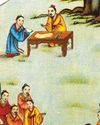
Confucius & Socrates
Some teachers are so inspirational that their influence lives on long after they die.